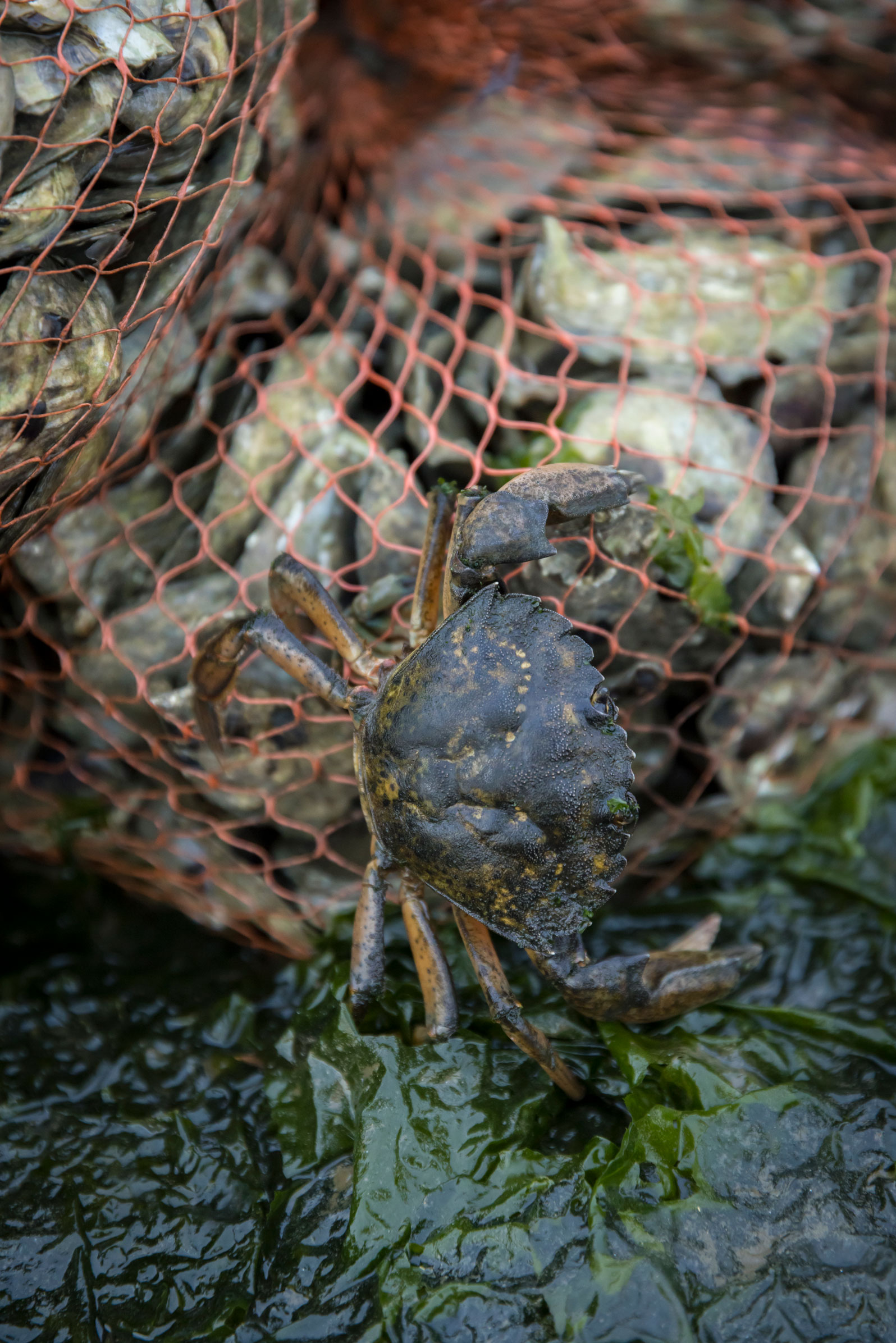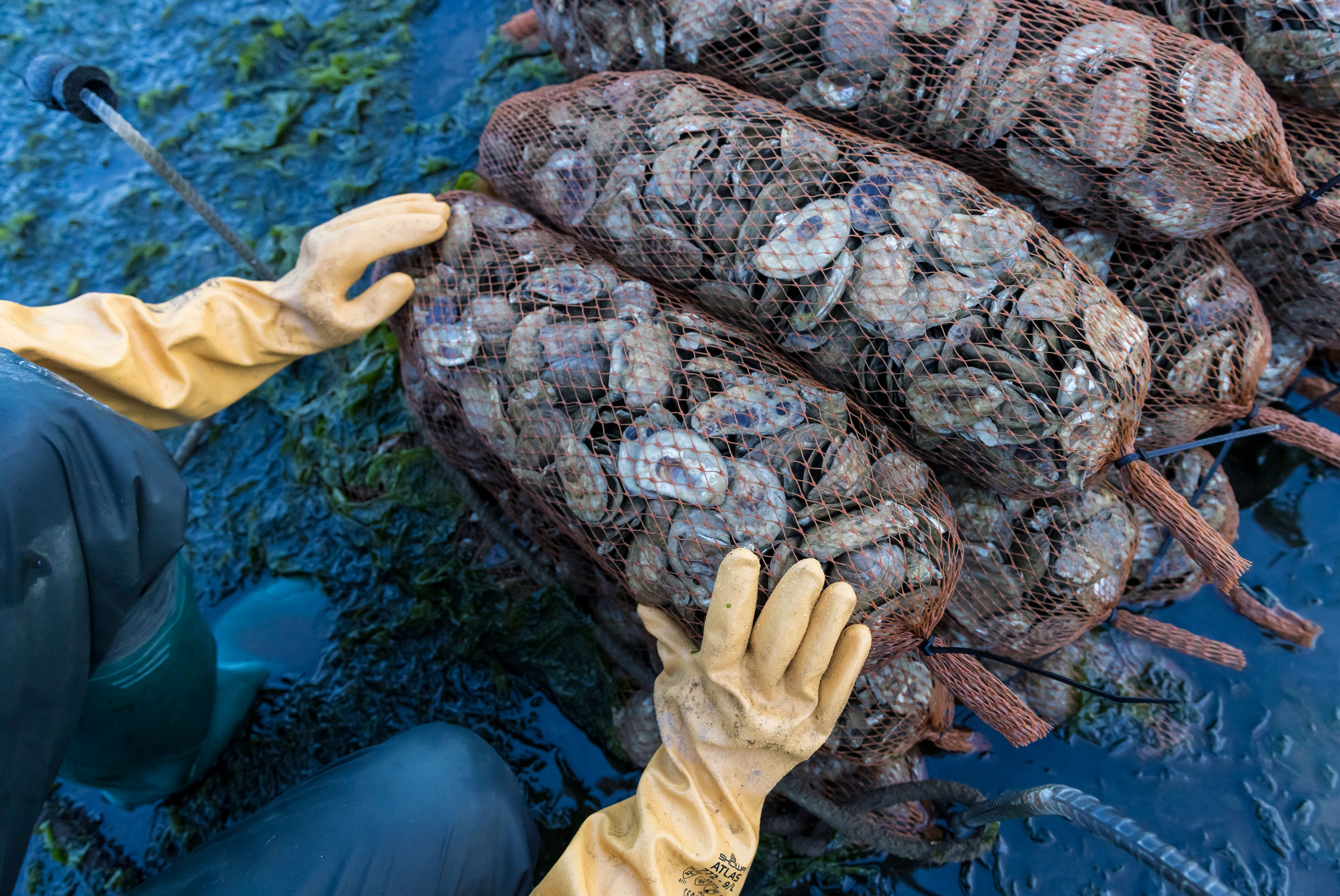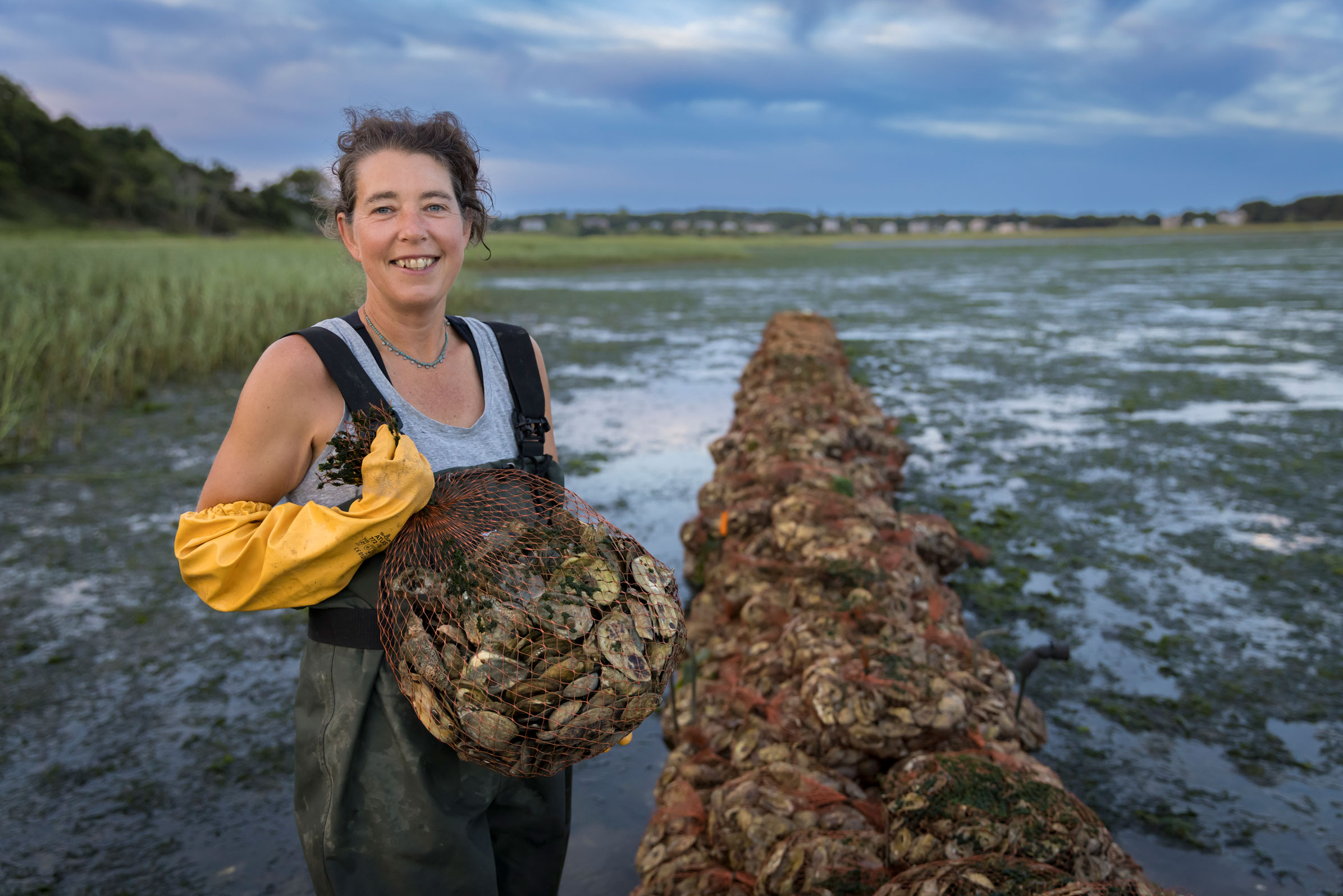An innovative Shell Recycling Program is cutting down on landfill waste while building new habitats for local oysters.
by Lisa Cavanaugh
photography by Julia Cumes
Next time you enjoy a dozen local oysters at an Outer Cape establishment, you can feel reassured that the discarded shells will have a new purpose.
Every year, the Shell Recycling Program, part of the Massachusetts Oyster Project, a nonprofit dedicated to the restoration of native shellfish, collects approximately 37,000 pounds of oyster shells from over 20 restaurants. Now in its third season, the program provides participating restaurants in Wellfleet, Provincetown, Orleans, Eastham, and Chatham with five-gallon buckets that are collected daily, Memorial Day through Labor Day.
“Our goal is not only getting the shells back in the water for oyster habitats but also keeping them out of landfills,” says Erika Smith, program coordinator.
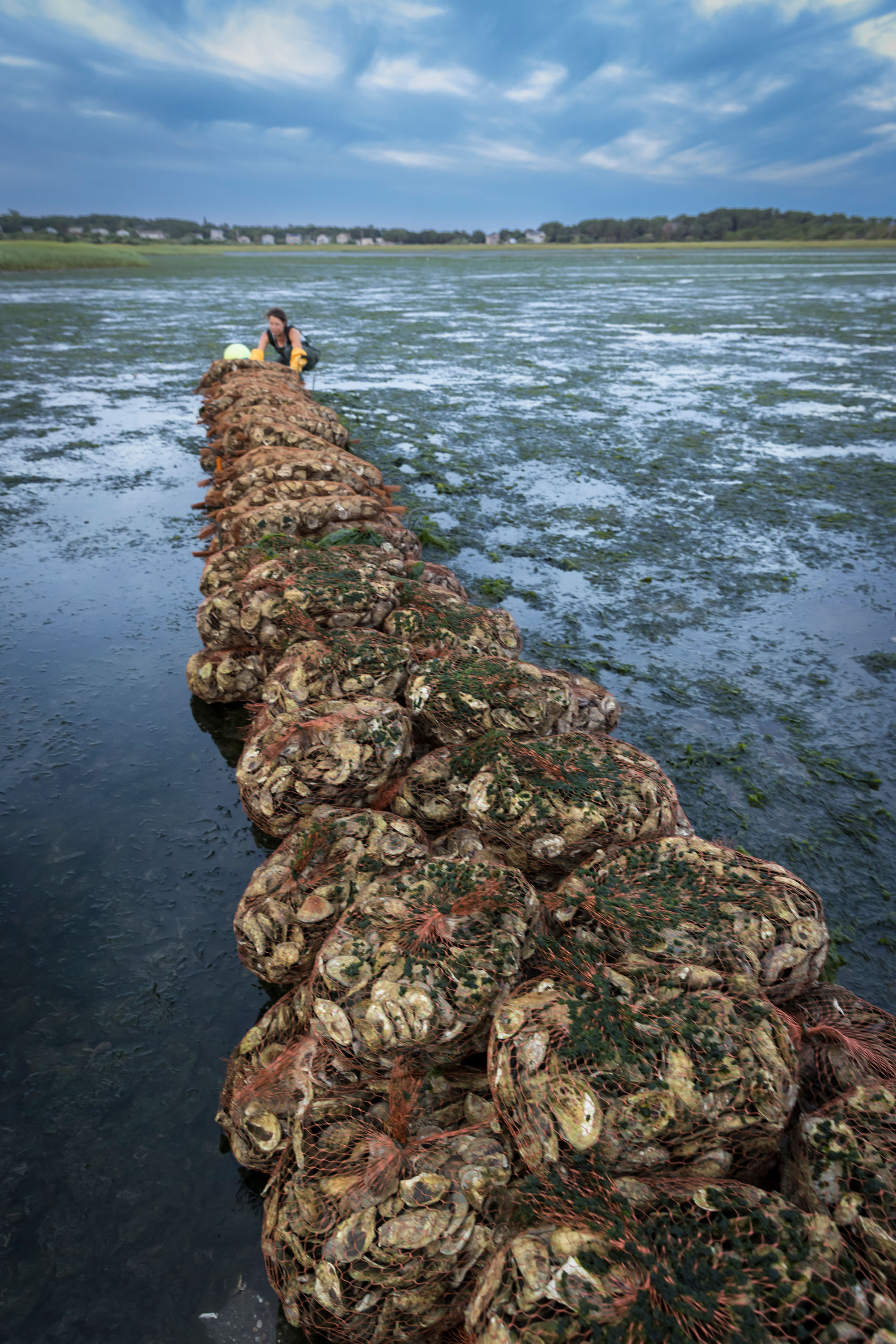
“We partnered with the town of Wellfleet to store them at the town transfer station,” continues Smith, who explains that the shells, which can initially harbor bacteria and potential pathogens, spend a year exposed to the sun, rain, and birds, all of which clean them very effectively. “Throughout the year, as the pile gets bigger, the workers push it around a bit to uncover shells at the bottom,” she notes.
Once “seasoned,” the old shells go back into local waters as cultch, forming a spawning bed where oyster larvae can attach and grow. Previously, the shells were spread loosely on the sea floor; however, this past year, the program deployed them in mesh bags (similar to lobster bait bags) arranged in lines where oyster spawning is anticipated.
Smith works closely with Nancy Civetta, Wellfleet’s shellfish constable, who wholeheartedly supports the program as part of the town’s robust propagation efforts. “We do all sorts of things to either supplement what Mother Nature provides or accent the oyster nursery habitat,” says Civetta.
Wellfleet welcomed the Massachusetts Oyster Project’s offer of cultch. “I told them we could definitely use the shell, but I didn’t have the staff time to get it done on our own,” says Civetta. “It is great that the program takes care of the logistics and documents their efforts so we can ensure the recycled shell is making it back into the harbor as planned.”
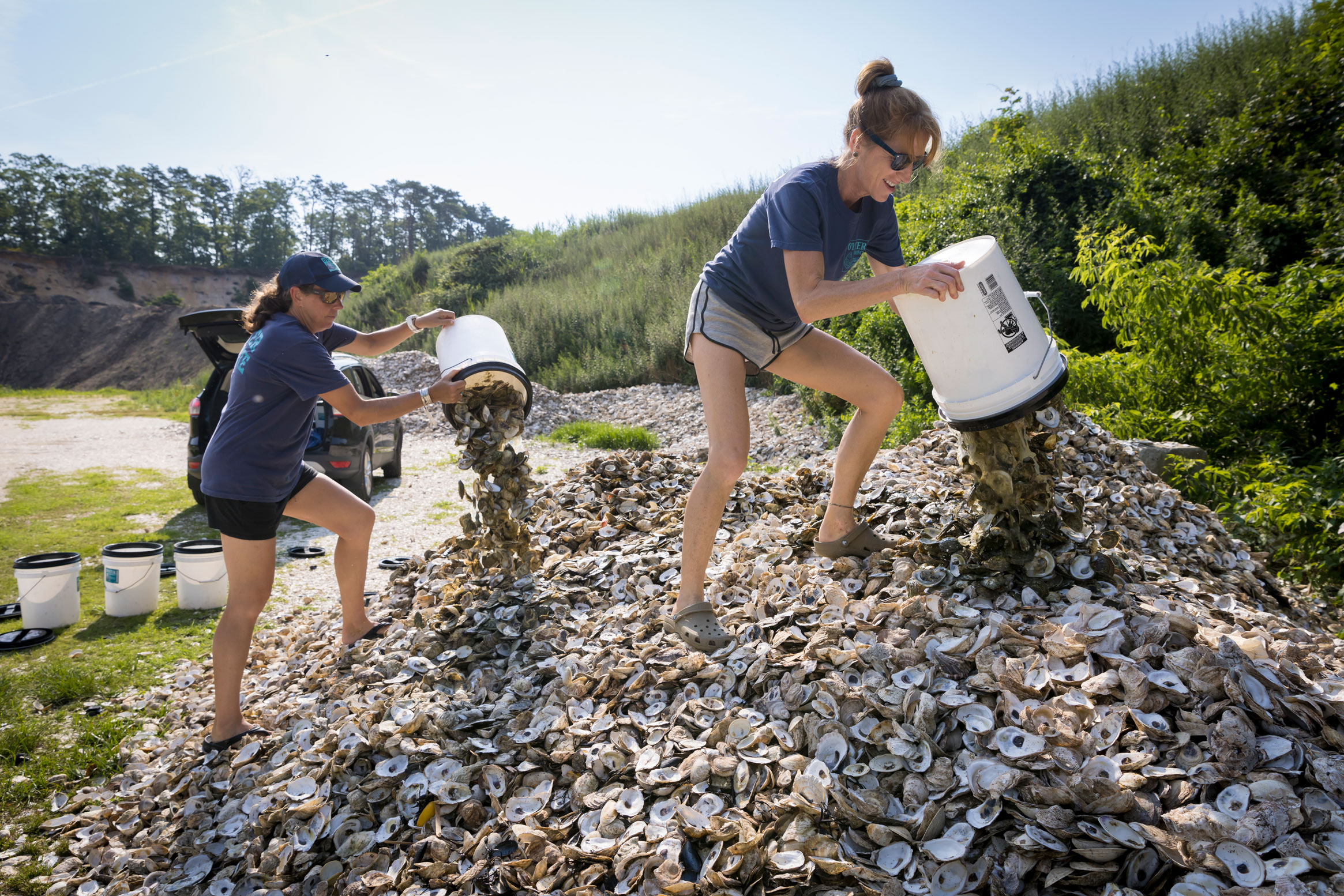
The constable is especially pleased that the program’s efforts contribute to the life cycle of Wellfleet’s prized bivalves. “It really is a beautiful circle for our oysters,” she summarizes.
Smith and her colleagues, including Liv Woods, the Massachusetts Oyster Project’s new executive director, have added an education component to better inform residents and visitors about the importance of restoring shellfish populations. “During the summer, we have a booth at the local farmers’ market in Orleans,” says Smith. “Every Saturday, we’re there to help educate folks about our work and the value of native oyster habitats.”
Smith, who was raised in Massachusetts and, after working in Austin, Texas, for several years, now resides on the Cape, says that the participating restaurants are on board with the program for several reasons. It helps offset their landfill waste—plus, having a more robust local shellfishery only serves to benefit their in-demand raw bar menus for years to come.
Now, with 22 restaurants signed up, the grant-funded program is at capacity. “I currently have eight folks who travel around in their own vehicles to pick up the shell buckets seven days a week. There are challenges to expanding,” says Smith.
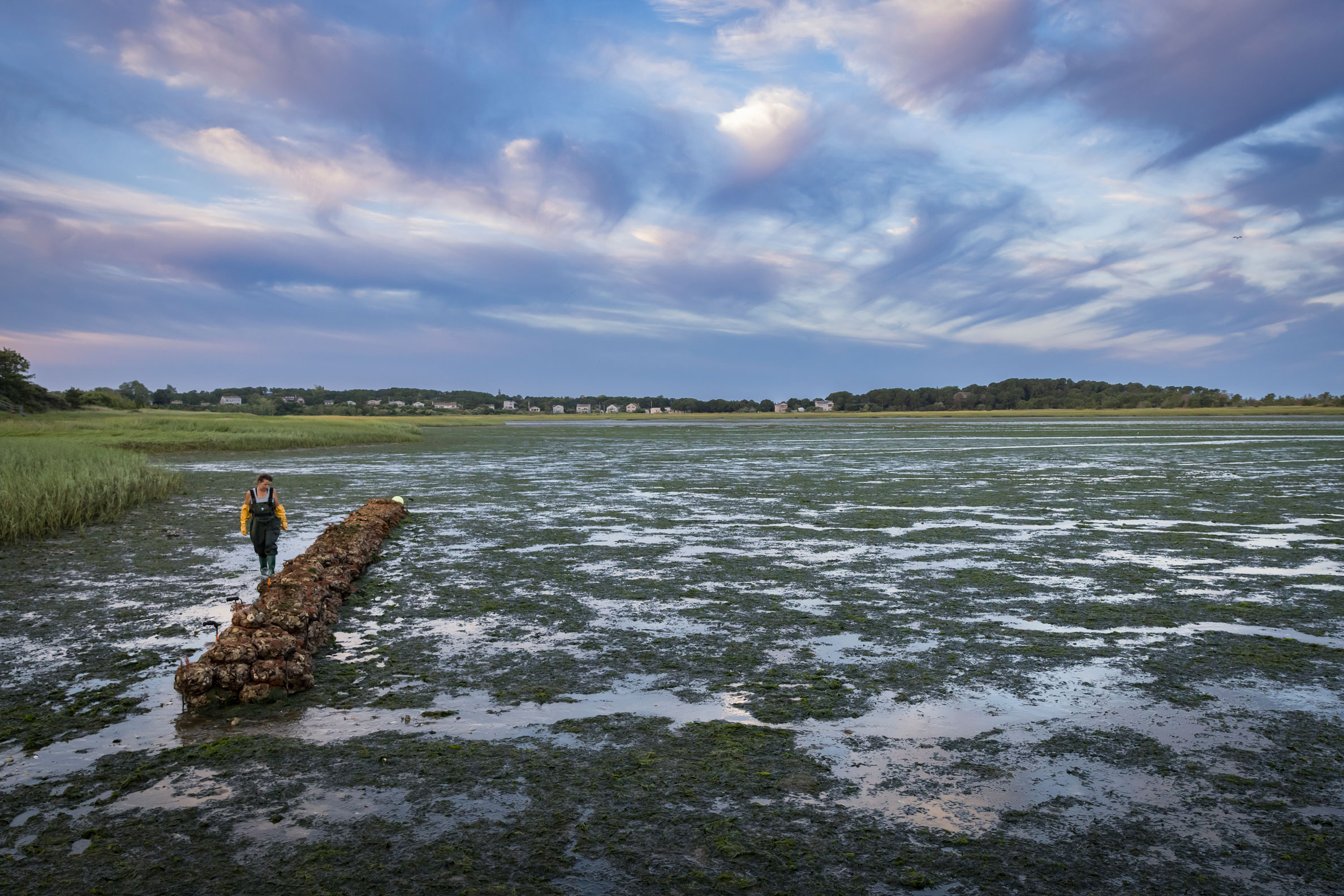
Many states have embraced the environmental and economic benefits of oyster shell reclamation and habitat support. The Massachusetts Oyster Project is continually looking at possible revenue streams or future municipal management of its recycling efforts, but for the time being, the program provides its service free to restaurants and towns as resources allow.
“Continued funding is very important,” Smith concedes, “and I think a donation of a truck for collecting the shells would be very helpful.” All 15 towns on the Cape have oysters–in their waters and on their restaurant menus–and the Shell Recycling Program benefits the entire peninsula.
“And don’t forget clams!” she adds with a laugh. “That will have to be a project for another day.”
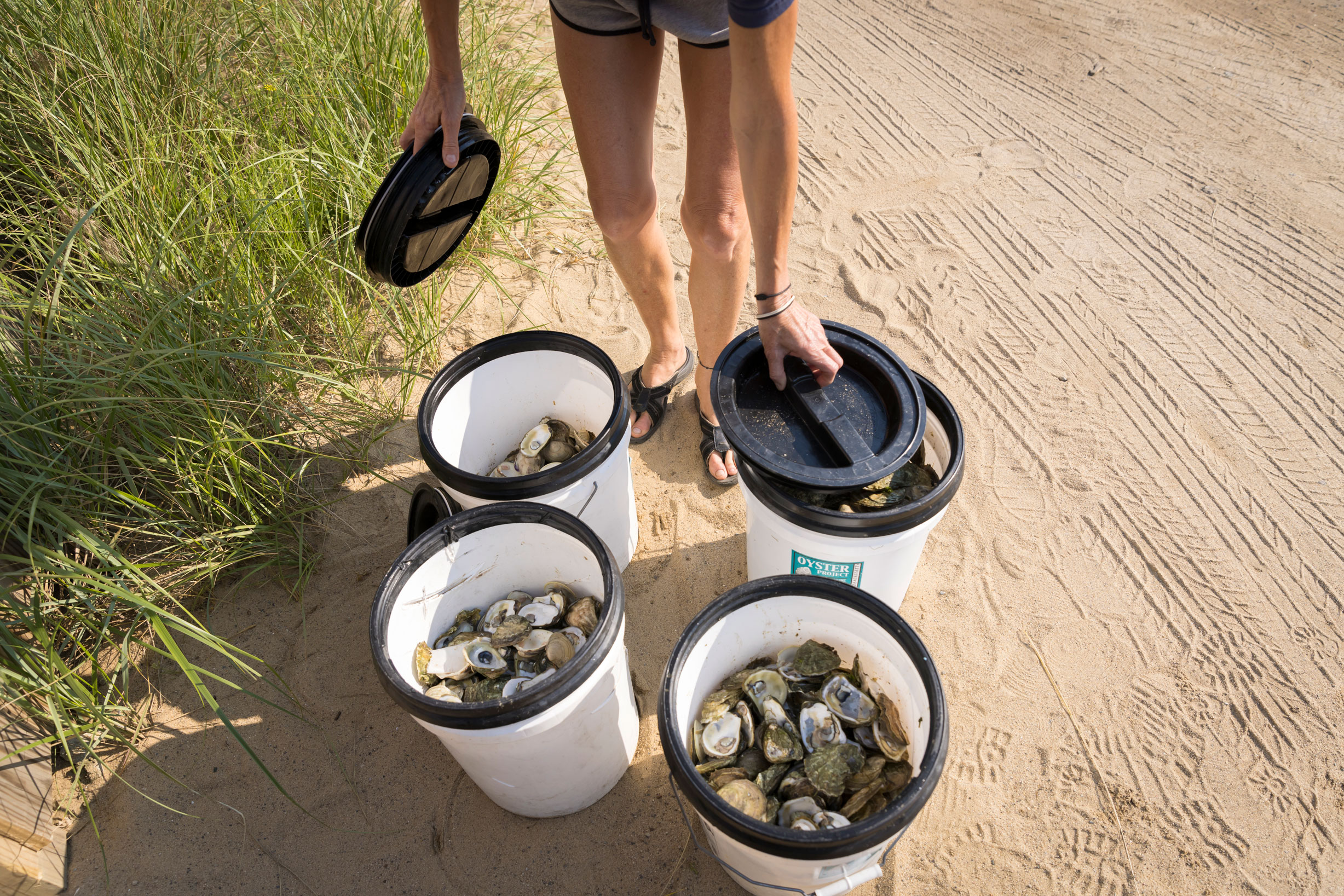
To learn more, donate, or get involved
